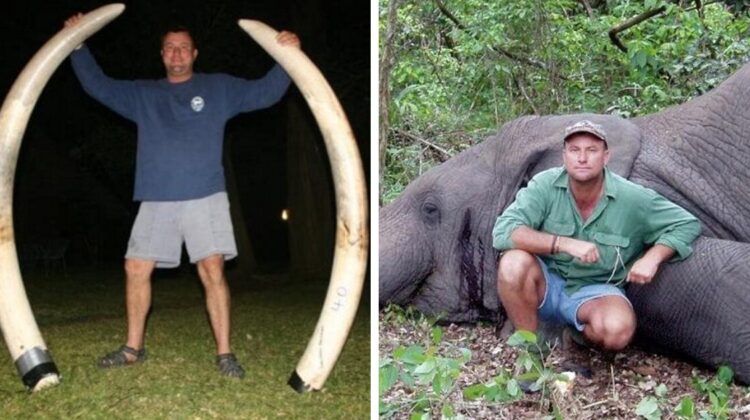In a twist of cruel irony, a well-known big game hunter met his end beneath the very creature he was pursuing. Theunis Botha, a South African hunter famed for organizing luxury trophy safaris, was crushed to death when a wounded elephant collapsed on top of him during a hunting expedition in Zimbabwe.
The incident unfolded near Hwange National Park, a protected wildlife area home to one of Africa’s largest elephant populations. According to reports, Botha and his group encountered a herd of breeding elephants. When the animals charged, one female elephant reportedly lifted Botha with her trunk. A fellow hunter fired, killing the elephant—but as she fell, her massive body landed on Botha, ending his life instantly.
A Life Built Around the Hunt
Theunis Botha had been in the big game hunting industry since 1989. His specialty? “Monteria” style hunts, a Spanish technique involving trained hounds driving game toward hunters. His company catered to elite clients willing to pay top dollar to hunt iconic African wildlife. His website touted years of experience, military background, and multiple private hunting estates across southern Africa.
A father of five, Botha was confirmed dead by his eldest daughter. Fellow hunting outfitters shared their condolences, calling him a “great man” and “a legend of the field.”
The Ethics of the Kill
But not everyone mourned. The tragedy reignited a long-standing global debate: should trophy hunting still exist?
Conservationists argue that killing elephants—already vulnerable due to habitat loss and poaching—cannot be justified, even under the guise of regulated sport. Proponents claim that hunting fees fund wildlife preservation. Critics counter that eco-tourism generates more sustainable income without bloodshed.
With growing international pressure, platforms like Facebook and YouTube have started banning trophy hunting content, and several countries have begun restricting imports of animal trophies. The tides are shifting—and Botha’s death may become a symbol of that change.
Crushed by Consequence
The story of Theunis Botha is now more than just a headline. It’s a reflection of a world at odds with itself: the ancient thrill of the hunt colliding with modern ethics and environmental concern. As nature claimed one of its pursuers, the moment felt less like an accident—and more like a reckoning.






